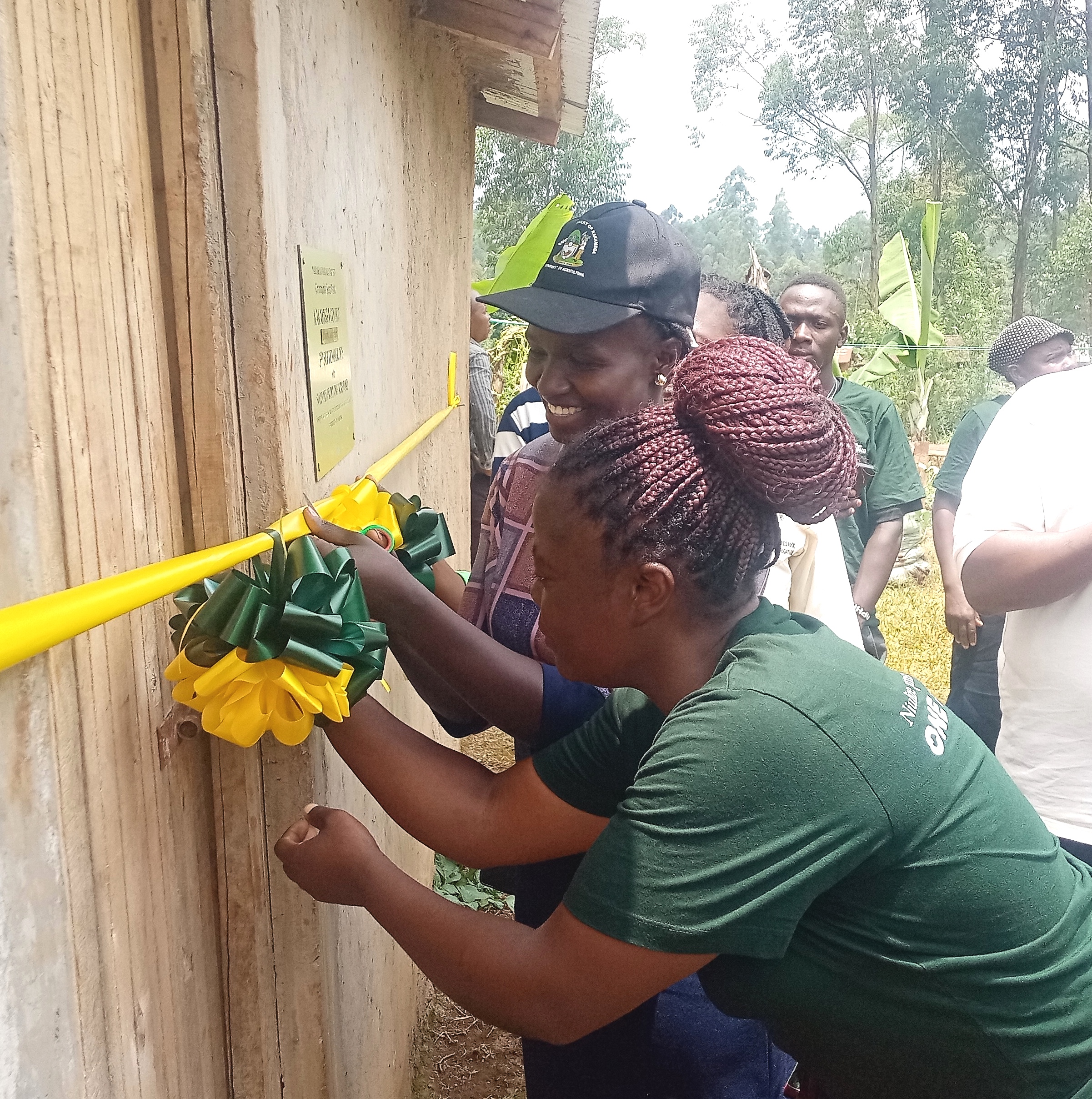
 Mahiakalo crops officer Lucy Makhapula (in cap) during the opening of the Baraka farmers Community Seed Bank at Nyayo Tea Zone in Kakamega on Wednesday /HILTON OTENYO
Mahiakalo crops officer Lucy Makhapula (in cap) during the opening of the Baraka farmers Community Seed Bank at Nyayo Tea Zone in Kakamega on Wednesday /HILTON OTENYO In a quiet corner of Lurambi, a group of farmers is waging war against climate change.
The fight—not with chemicals or machinery—employs tiny seeds passed down through generations.
The Mahiakalo Baraka Farmers Community Seed Bank, launched this week, is now home to indigenous treasures such as sorghum, millet and African leafy vegetables.
For farmers like Carolyn Osengo, it represents more than storage—it is survival.
“We used to broadcast seeds on the farm without knowing if they were viable,” she said.
“Now we are sure of what we’re planting and our yields have improved.”
The facility is the third in Kenya, after Bungoma and Kisii and was set up through a partnership between service provider Tupande, farmer groups and the One Acre Fund.
The idea is simple: preserve traditional crops that are slowly disappearing, ensure farmers always have seeds to plant and restore diets once rich in local foods.
Nutrition and Health programmes officer at One Acre Fund, Brenda Wekesa, said seed banks are not only storage, but are resilience in action.
“Indigenous crops are good for nutrition, profitability and climate resilience. We want farmers to be empowered to feed themselves and their communities despite the changing climate,” she explained.
Farmer Pamela Aboge said the seed bank ends the anxiety that comes with planting seasons. “Sometimes farmers ate the seeds they had stored because of hunger. Climate change also shifted the seasons, so we were just guessing. Now, we are prepared.”
Beyond food security, the project also seeks to restore dignity to women, who have traditionally been custodians of seeds and to fight nutrition-related diseases linked to processed foods.
Local agriculture officials say the initiative is part of a broader plan to identify which crops can survive in the face of heavy rains and shifting weather patterns.
Farmers, meanwhile, are hopeful that this quiet seed revolution will guarantee harvests, health and a future for their children.
As Osengo carefully labels jars of millet and vegetables inside the seed bank, she smiles. “These seeds are our heritage. By protecting them, we are protecting ourselves.”
Instant Analysis
The launch of a community seed bank in Kakamega marks a crucial step in safeguarding Kenya’s agricultural heritage while tackling climate change. With indigenous crops like millet, sorghum and African leafy vegetables under threat, the seed bank offers farmers reliable access to resilient, nutritious varieties. Beyond food security, the initiative empowers women as traditional custodians of seeds and combats diet-related illnesses tied to processed foods. By conserving biodiversity and ensuring year-round seed availability, the project strengthens farmer resilience against shifting weather patterns. It reflects a growing recognition that solutions to climate change lie in both innovation and preserving indigenous knowledge.












